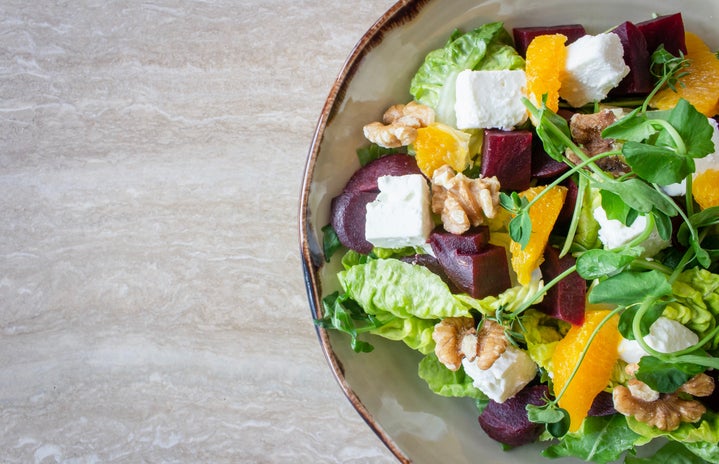More than ever before, there has been a radical increase in the awareness and consciousness towards issues concerning mental health. One of the easiest ways to fight off short term mood-swings that seriously lead to unproductive, long, and sad days is often overlooked. To me, a bite of dark chocolate or some fresh berries can be magic on a bad day. To you, it could be roast salmon, lentil soup, or just a spoon of Nutella. All that is needed is to realise the powers some food have over your mood and ultimately your day. It turns out that you are what you eat after all!
Some people live to eat and others eat to live. Personally, I swap between the two depending on my mood. No matter the type, the following points are great tips for a quick mood boost! If you figure out the diet that works best for you, I can assure it to be the key to a long-term sustainable high spirit too!
1. Be nice to your gut
Over the summer, I realised the power of keeping my gut happy. It has tremendous control over our bodies and our heads. A poor gut is associated with depression, anxiety, and other mental illnesses. Also, it can place so much stress on your system, making you release molecules that affect the way your brain functions. Probiotics are the best for your gut. Almonds, sourdough, olive oil, kimchi, and miso are also foods that directly improve your gut and fundamentally the way you function on a day-to-day basis.
2. Sugar is not your friend
The sugar boost after guiltily reaching out to a candy bar or some Haribo gummy bears might leave you feeling worse, than better. Studies have shown that there is a strong connection between diets that are high in refined sugars and impaired brain function. These also include mood disorders like depression. Any kind of artificial spike with addictive properties has negative impacts physically and mentally. But a bar of chocolate or some candy can sometimes be the best cure after having a bad day. Remember to be honest to your body and give it exactly what it needs!
3. Don’t forget your omega-3s!
Salmon is my go to in St Andrews. Finding yourself a favorite source of omega-3s is probably the best thing you can do for yourself. They are full of health benefits including the potential to help treat symptoms of depression, bipolar disorder, and play the most important role in creating healthier brain cells. Fish, seeds, nuts, soy, and canola oil are great sources of omega-3 fatty acids.
4. Find your comfort food
The food that you grew up with and reminds you of home is comfort food. It can heal you mentally, and comfort you in ways nothing else can. Living far away from home for university in a small town is harder than we realize and finding our comfort food can be the best way to take care of mental health.
The bottom line drawback of the science behind eating for mental wellness is that there is no single magic bullet food. This can also be a perk. No specific changes are needed in anyone’s diet. Everyone works differently and figuring out your unique food that works for you is the key. Remember to hydrate and pamper yourself!


